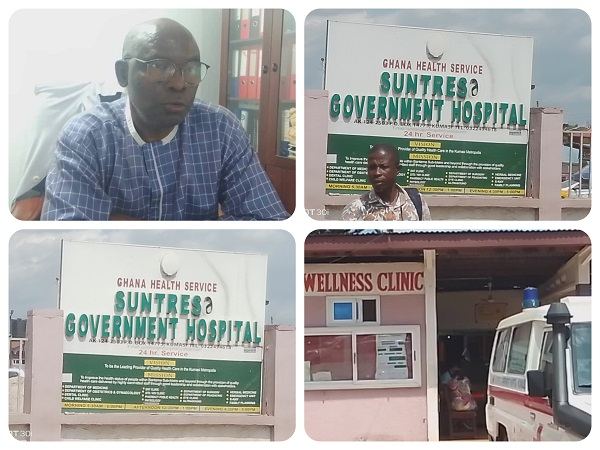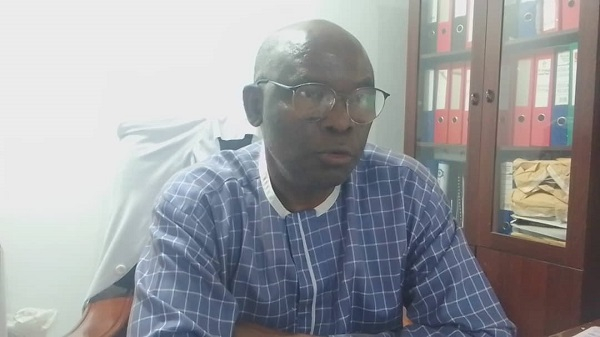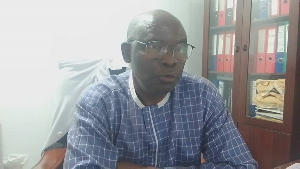 Dr Thomas Agyarko Poku is the Medical Superintendent of Suntreso Hospital
Dr Thomas Agyarko Poku is the Medical Superintendent of Suntreso Hospital
Correspondence from Ashanti Region
The healthcare system within the Ashanti Region is suffering a severe impact from the strike by the Ghana Registered Nurses and Midwives Association (GRNMA), just three days after the action began. The strike is badly affecting some key hospitals in the Ashanti Region, including the Suntreso Government Hospital and the Komfo Anokye Teaching Hospital, among others.
A visit to Suntreso Hospital by GhanaWeb’s Ashanti Regional Correspondent, Gideon Nana Peprah, revealed a stark and troubling scene. The hospital, normally bustling with activity, was eerily quiet, with a significant backlog of patients and treatment processes grinding to a halt due to the drastically reduced nursing staff.
“The impact of this strike is devastating,” a hospital source told GhanaWeb. “We are struggling to cope, and patients are suffering as a result.”
The strike, which began on Monday, June 2, 2025, stems from unresolved grievances over nurses’ conditions of service. The GRNMA has warned that a full-blown strike could follow if the government fails to address their concerns.
The situation at Suntreso Hospital mirrors a similar crisis observed earlier at Komfo Anokye Teaching Hospital, where overcrowding and limited staff forced doctors to shoulder the responsibilities of nurses, stretching resources to their breaking point.
Some patients who spoke to this reporter at KATH revealed that the situation has had a dire impact on their healthcare. Some of them said they were in a state of dilemma and confusion.
“We are pleading with the parties involved to resolve this issue so that our healthcare can be secured. It is not a good thing for doctors and nurses to go on strike like this. We are doomed when it continues like this. We are pleading with the government to do the needful for these nurses, and we also pray that the nurses would rescind their decision.” Some patients at the Komfo Anokye hospital cried out.
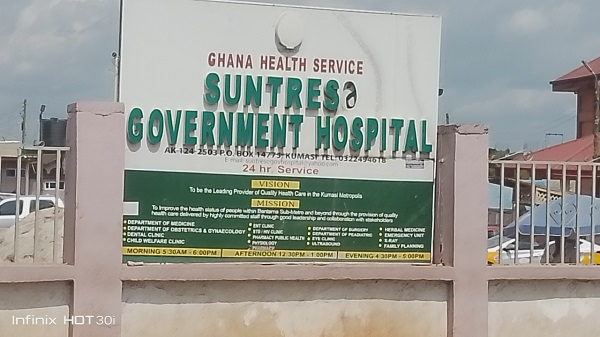
At Suntreso Hospital, GhanaWeb’s visit revealed a stark contrast to the hospital’s usual bustling activity. The Outpatient Department (OPD), normally packed with patients, was virtually empty. Investigations revealed that many patients, witnessing the chaotic scenes on previous days, had opted to seek treatment elsewhere, despite the availability of doctors.
“The patients see what’s happening, and they don’t want to risk their health by coming here,” a concerned resident near the hospital told this reporter.
As the strike nears its second week, the pressure on the government and the GRNMA to find a resolution is mounting. The longer the strike continues, the more profound the impact on Ghana’s already strained healthcare system, leaving countless patients in a precarious situation.
Dr Thomas Agyarko Poku, the Medical Superintendent of Suntreso Hospital, expressed deep concern about the situation. He emphasised the critical role nurses play in the day-to-day operations of the hospital, highlighting their responsibilities in administering medication, monitoring vital signs, providing personal care, and preparing patients for consultations.
“The absence of our nurses is having a devastating impact on the services we can provide,” Dr Agyarko Poku told this reporter. “They are the backbone of this hospital, and without them, we are severely limited.”
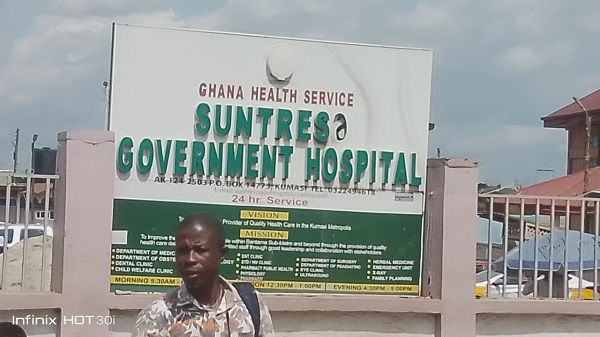
The Medical Superintendent explained that the hospital is now largely restricted to providing outpatient department (OPD) services, meaning they can only see patients who come and go. He expressed concern about the hospital’s inability to admit new patients or adequately care for those already admitted. Critical departments like the Labour Ward and the Theatre (Operating Room) are also severely affected.
According to Dr Agyarko Poku, the first day of the strike saw a drastic reduction in patient volume. While the hospital typically sees between 800 and 1000 patients a day, the number was significantly lower on Tuesday. He attributed this decline to patients seeking care at other facilities due to the reduced services.
He also highlighted the strain on the remaining staff, noting that doctors were working overtime to compensate for the absence of nurses, adding that the hospital also closed later than usual.
Dr Agyarko Poku expressed concern that some patients may have to be discharged to private hospitals, which could be both inconvenient and costly. He noted that many patients are covered by health insurance that is accepted at Suntreso Hospital, but may not be accepted at private facilities, resulting in a financial burden for patients.
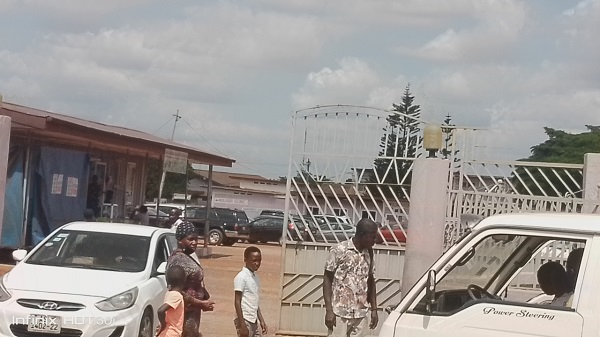
Dr Agyarko Poku made a strong appeal to both the government and the nurses to resolve the strike quickly through negotiations. He stressed that everyone is vulnerable to illness and may need hospital care at any time. He expressed his moral distress, stating that it is disheartening to be unable to provide proper care to patients due to the strike.
The Medical Superintendent painted a stark picture of a hospital struggling to provide essential services due to the nurses’ strike, underscoring the urgent need for a resolution to the ongoing labour dispute.
